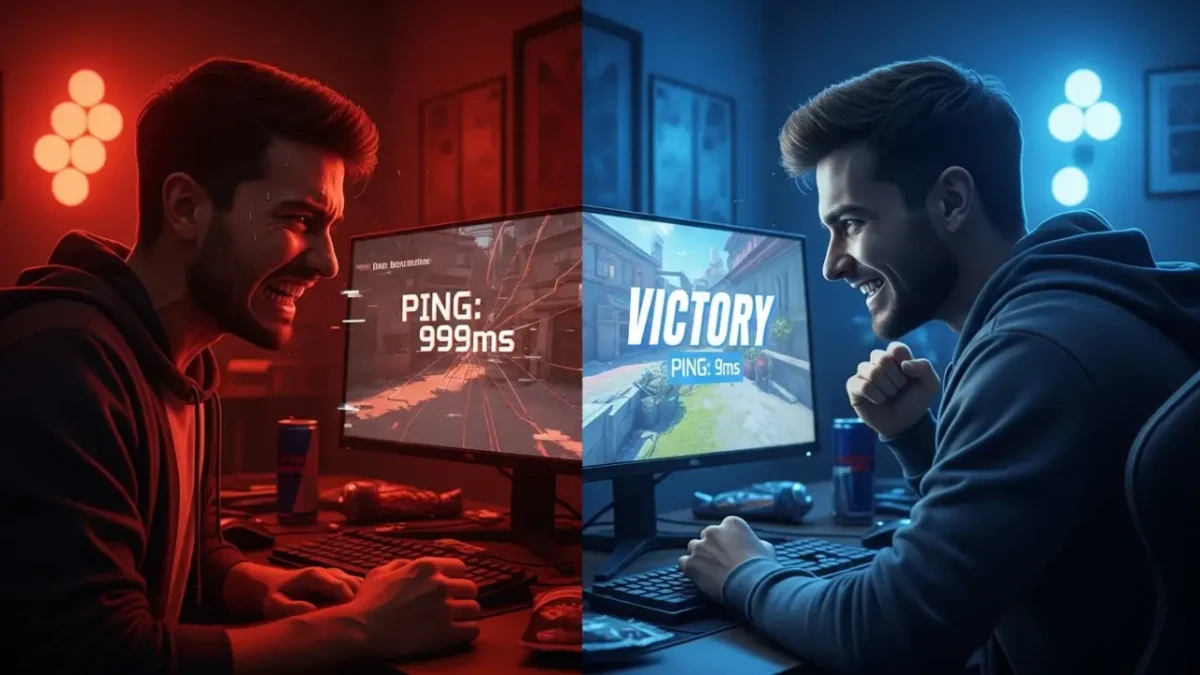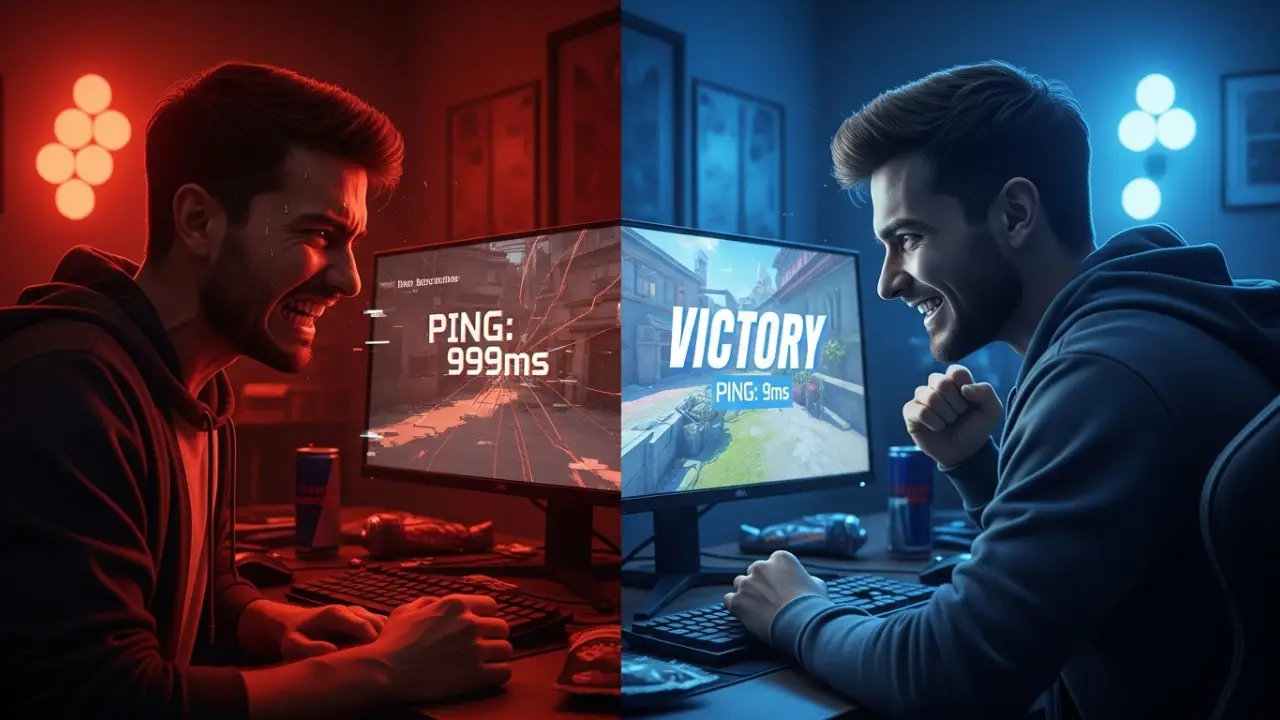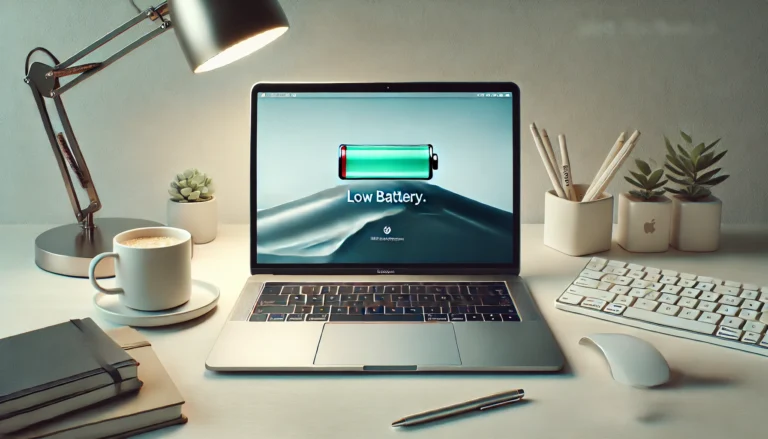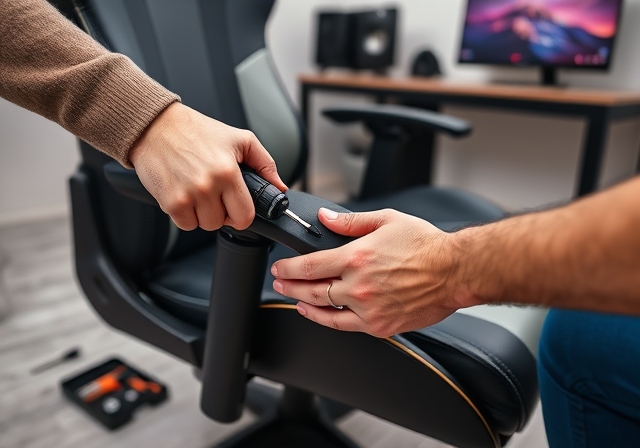Best DNS Servers for Gaming in 2025: Reduce Lag and Improve Performance
Finding the best DNS servers for gaming is one of the most powerful, yet overlooked, ways to achieve a faster and more stable online experience. If you’re tired of frustrating lag spikes and random disconnects ruining your matches, the solution is often simpler and cheaper than a new graphics card or a faster internet plan.

This guide will demystify DNS and walk you through the top free and premium options. By making a simple change that takes less than five minutes, you can significantly lower your latency, reduce ping, and ensure your connection is as sharp as your reflexes.
Quick Guide: Top 3 DNS Servers for Gamers
- Best Overall: Cloudflare DNS (1.1.1.1) – The top choice for most gamers, offering an unbeatable combination of raw speed and strong privacy.
- Most Reliable: Google Public DNS (8.8.8.8) – A rock-solid, “set it and forget it” option backed by Google’s world-class infrastructure.
- Best for Security: Quad9 DNS (9.9.9.9) – Adds a powerful layer of real-time security, protecting you from malicious sites without you having to lift a finger.
What Is DNS and Why Does It Matter for Gaming?
Think of DNS as your game’s personal GPS. When you log into Fortnite or Warzone, your console or PC needs to find the game server’s exact address online. The DNS server is what provides those directions.
A slow or unstable DNS is like a GPS that’s constantly recalculating—it adds a delay before you even connect, which can lead to:
- Higher Ping & Latency: Every millisecond counts. A sluggish DNS lookup adds to your overall ping, making your connection feel less responsive. Wondering what your current ping is? A quick internet speed test will show you in seconds.
- Annoying Disconnects: If your DNS server is unstable, it can cause you to drop from matches at the worst possible moments.
- Slower Game Downloads: This process also affects how quickly your system can find and connect to download servers for games and updates.
- Security Risks: Your default ISP-provided DNS can sometimes be less secure, leaving you more exposed to phishing or other online threats.
Luckily, upgrading your DNS is free, completely safe, and takes just a few minutes.
Top 5 Best DNS Servers for Gaming
Below are our top picks for DNS servers optimized for gaming, based on speed, reliability, and features.

1. Cloudflare DNS (1.1.1.1 / 1.0.0.1)
When it comes to raw speed and privacy, Cloudflare is the undisputed champion. It leverages a massive global network with Anycast routing, which means your request is automatically sent to the geographically closest server, drastically reducing lookup time. It also has a strict no-logging privacy policy.
Primary DNS: 1.1.1.1
Secondary DNS: 1.0.0.1
Why It’s Best for Gaming:
- Average response time: 14ms globally
- Privacy-focused (no logging)
- Built-in malware protection
- Supports DNS over HTTPS
- 99.99% uptime guarantee
Best For: Any gamer who wants the absolute fastest response times and guaranteed privacy.
2. Google Public DNS (8.8.8.8 / 8.8.4.4)
Google’s Public DNS is all about reliability and speed. Like Cloudflare, it uses Anycast routing to ensure fast connections from anywhere in the world. It is an incredibly stable and well-supported service, making it a powerful and dependable choice for any gamer.
Primary DNS: 8.8.8.8
Secondary DNS: 8.8.4.4
Gaming Benefits:
- Consistent 20-30ms response times
- Excellent global infrastructure
- High reliability and uptime
- Works well with Google services
- Easy to remember addresses
Best For: Gamers who want a simple, no-fuss DNS from a trusted name that delivers excellent, reliable performance day in and day out.
3. Quad9 DNS (9.9.9.9 / 149.112.112.112)
Think of Quad9 as your connection’s personal security guard. Its main mission is to keep you safe by using real-time threat intelligence from over a dozen cybersecurity firms. When you try to connect to a known malicious domain, Quad9 simply blocks the connection, protecting you from malware, phishing, and spyware.
Primary DNS: 9.9.9.9
Secondary DNS: 149.112.112.112
Security Advantages:
- Automatically blocks malicious domains
- Privacy-focused (no user data collection)
- IBM X-Force threat intelligence
- Good gaming performance
- Non-profit organization
Best For: Security-conscious gamers who want automated, enterprise-grade protection without sacrificing too much performance.
4. OpenDNS (208.67.222.222 / 208.67.220.220)
One of the original public DNS providers (now owned by Cisco), OpenDNS offers a great mix of speed, security, and optional content filtering. Its “FamilyShield” servers can automatically block adult content, making it a fantastic choice for family networks.
Primary DNS: 208.67.222.222
Secondary DNS: 208.67.220.220
Gaming Features:
- Built-in security filtering
- Customizable blocking options
- Parental controls available
- Phishing protection
- Good performance for most regions
Best For: Gaming on a shared or family network where extra security and content filtering are just as important as speed.
5. Level3 DNS (4.2.2.1)
Level3 (now part of Lumen) is one of the largest internet backbone carriers in the world, and their public DNS is a direct pipeline to that massive infrastructure. While it’s an older service, its performance, particularly in North America, remains highly competitive.
Primary DNS: 4.2.2.1
Secondary DNS: 4.2.2.2
Performance Features:
- ISP-grade infrastructure for high reliability
- Low latency routing, especially for NA servers
- No content filtering for a raw, fast connection
Best For: North American competitive gamers looking for a stable, low-latency alternative.
Which DNS is Fastest? The Data
While Cloudflare is often the fastest on average, the best DNS for you depends heavily on your location. The table below shows average response times from different regions.
| DNS Provider | North America | Europe | Asia-Pacific | Average |
|---|---|---|---|---|
| Cloudflare (1.1.1.1) | 12ms | 15ms | 16ms | 14.3ms |
| Level3 (4.2.2.1) | 15ms | 28ms | 40ms | 27.7ms |
| Google DNS (8.8.8.8) | 18ms | 22ms | 28ms | 22.7ms |
| Quad9 (9.9.9.9) | 20ms | 26ms | 32ms | 26.0ms |
| OpenDNS | 25ms | 30ms | 35ms | 30.0ms |
Note: Results may vary based on your specific location and ISP. These are representative averages. For the most accurate results, you should run your own benchmark.
Advanced DNS Optimization Tips
To get a true competitive edge, you can go beyond just picking a server.
1. Run Your Own DNS Benchmark
Use tools like DNS Benchmark or namebench to test DNS performance from your specific location:
- Download DNS Benchmark (free tool by Gibson Research)
- Run comprehensive speed tests
- Compare response times for your most-used gaming services
- Choose the fastest performing DNS for your location
2. DNS Caching Optimization
Windows DNS Cache Commands:
ipconfig /flushdns # Clear DNS cache
ipconfig /displaydns # View current DNS cacheRouter DNS Cache:
- Enable DNS caching in router settings
- Set appropriate cache timeout (300-3600 seconds)
- Clear cache when changing DNS servers
3. Multiple DNS Configuration
Configure primary and secondary DNS servers for redundancy:
- Primary: Fastest DNS server for your location
- Secondary: Most reliable backup option
- Avoid: Using DNS servers from the same provider
Tailoring Your DNS to Your Favorite Games

Different games have different priorities. Here are our top recommendations based on genre:
Competitive FPS Games (CS2, Valorant, Apex Legends)
- Recommended: Cloudflare (1.1.1.1) or Level3 (4.2.2.1)
- Priority: Lowest possible latency
- Additional Tip: Use wired connection with gaming DNS
MMORPGs (World of Warcraft, Final Fantasy XIV)
- Recommended: Google DNS (8.8.8.8) or Cloudflare
- Priority: Stability and consistent performance
- Additional Tip: Consider regional DNS servers
Battle Royale Games (Fortnite, PUBG, Warzone)
- Recommended: Cloudflare or Quad9
- Priority: Fast matchmaking and stable connections
- Additional Tip: Test multiple DNS servers during peak hours
How to Change Your DNS Settings: Step-by-Step Guides
Follow these simple instructions for your platform of choice.
On Your Router (Recommended for All Devices)
This is the most efficient method, as it applies the settings to your entire home network.
- Log in to your router’s admin panel (usually by typing 192.168.1.1 in your browser).
- Navigate to Internet or WAN settings.
- Find the DNS Settings section.
- Switch from Automatic to Manual and enter your preferred Primary and Secondary DNS addresses.
- Save your changes and restart your router.
On Windows 10/11
- Go to Settings > Network & Internet > Advanced network settings.
- Click More network adapter options.
- Right-click your connection (e.g., “Ethernet”) and select Properties.
- Select Internet Protocol Version 4 (TCP/IPv4) and click Properties.
- Choose “Use the following DNS server addresses” and enter your new DNS info.
On PlayStation 5
- Go to Settings > Network > Settings > Set Up Internet Connection.
- Select your network and choose Advanced Settings.
- Change DNS Settings from Automatic to Manual.
- Enter your Primary and Secondary DNS.
On Xbox Series X/S
- Go to Settings > General > Network Settings.
- Select Advanced Settings > DNS Settings > Manual.
- Enter your new Primary and Secondary DNS addresses.
FAQs about the Best DNS Servers for Gaming
What is the fastest DNS for gaming?
Cloudflare (1.1.1.1) is widely regarded as the fastest due to its modern infrastructure. However, testing with a tool like DNS Benchmark is the only way to know the absolute best for your specific location.
Can changing DNS reduce ping?
Yes. While it won’t change ping related to physical distance, it reduces the initial DNS lookup latency. This makes your connection feel snappier and can improve overall stability, which often translates to a better in-game ping.
Is it safe to use public DNS servers?
Absolutely. Reputable providers like Cloudflare and Quad9 are often more secure and private than default ISP servers. Prioritize those with clear, transparent privacy policies.
How do I test my DNS speed?
Changing it on your router is more efficient. It’s a one-time setup that ensures every device on your network benefits from the faster, more secure connection.
Should I change DNS on my router or individual devices?
Changing DNS at the router level is more efficient, as it applies to all devices on your network.
Conclusion
Choosing one of the best DNS servers for gaming is a simple change that can yield significant improvements in connection speed, stability, and security. For most gamers, Cloudflare (1.1.1.1) offers the best all-around package.
However, for competitive gaming in North America, Level3 (4.2.2.1) remains a top-tier choice due to its low latency. For family setups, OpenDNS provides excellent filtering options. Ultimately, the best approach is to test DNS performance from your specific location.
Remember that DNS is one crucial part of a total network optimization strategy. For the best results, combine a great DNS with a wired connection and consider looking into the Best WiFi 7 Routers for Gaming in 2025 to truly maximize your performance.






